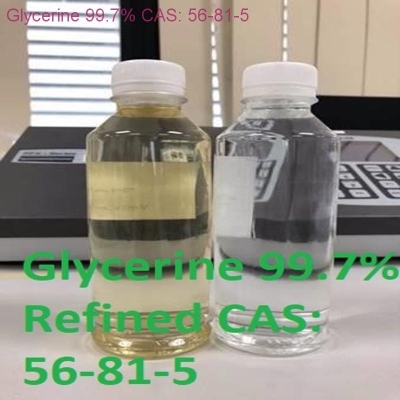-
Categories
-
Pharmaceutical Intermediates
-
Active Pharmaceutical Ingredients
-
Food Additives
- Industrial Coatings
- Agrochemicals
- Dyes and Pigments
- Surfactant
- Flavors and Fragrances
- Chemical Reagents
- Catalyst and Auxiliary
- Natural Products
- Inorganic Chemistry
-
Organic Chemistry
-
Biochemical Engineering
- Analytical Chemistry
- Cosmetic Ingredient
-
Pharmaceutical Intermediates
Promotion
ECHEMI Mall
Wholesale
Weekly Price
Exhibition
News
-
Trade Service
Introduction Currently, the best treatment for patients with mild to moderate symptoms of Crohn's disease (CD) is uncertain
.
Many patients hope that there will be an alternative to long-term immunosuppressive therapy, such as a therapeutic diet
.
Some studies have found that the Mediterranean diet (MD) is associated with a reduction in symptoms and an improvement in the quality of life of patients with CD
.
The specific carbohydrate diet (SCD) is one of the most commonly used therapeutic diets.
Small studies have provided preliminary evidence that using SCD or modified SCD can improve symptoms and reduce intestinal inflammation
.
Recently, Gastroenterology (impact factor 17.
373) published a randomized controlled trial to compare the effectiveness of SCD and MD in the treatment of mild to moderate symptoms of CD
.
The results show that: Compared with SCD, MD may be more suitable for most CD patients with mild to moderate symptoms (see the end of the article for recommended and restricted foods for MD)
.
Research methods: Adult CD patients with mild to moderate symptoms were randomized to receive MD or SCD treatment for 12 weeks at a ratio of 1:1
.
Neither the researcher nor the subjects know what kind of diet they will be assigned next (ie, blind grouping)
.
During the first 6 weeks of the trial, the subjects received a prepared meal (breakfast, lunch and dinner plus snacks twice a day) according to their assigned diet
.
After 6 weeks, the subjects were instructed to buy and prepare their own meals and snacks
.
The primary and key secondary endpoints were evaluated after 6 weeks and 12 weeks of the trial
.
The primary endpoint was symptom relief at the 6th week of treatment, defined as the simplified Crohn’s disease activity index (sCDAI) <150 without starting or adding any CD drugs
.
Key secondary endpoints include: fecal calprotectin (FC) response (FC<250 μg/g and baseline FC>250 μg/g subjects with FC reduced >50%) and C-reactive protein (CRP) response [high Sensitive CRP (hsCRP) <5 mg/L and baseline hsCRP>5 mg/L subjects with hsCRP decreased >50%)]
.
The results of the study were a total of 194 patients who received randomization, of which 191 were included in the efficacy analysis
.
At the 6th week of treatment, the percentage of subjects who achieved symptom relief in the SCD group was not better than that in the MD group (46.
5% in the SCD group and 43.
5% in the MD group; P=0.
77) (Figure 1)
.
Figure 1 Percentage of subjects who reached the primary endpoint at the 6th week of treatment.
At the 6th week of treatment, 8/23 subjects (34.
8%) in the SCD group with elevated FC at baseline and 4/13 subjects in the MD group ( 30.
8%) achieved FC response (P=0.
83)
.
2/37 subjects (5.
4%) in the SCD group with elevated hsCRP at baseline and 1/28 subjects (3.
6%) in the MD group achieved a CRP response (P=0.
68) (Figure 2)
.
Figure 2 Percentage of subjects who reached key secondary endpoints in the 6th week of treatment Conclusion MD and SCD are well tolerated in CD patients with mild to moderate symptoms
.
SCD is not superior to MD in achieving symptom relief, FC response and CRP response
.
Based on the above results, the easier follow-up of MD, and other health benefits associated with MD, MD may be more suitable for most CD patients with mild to moderate symptoms than SCD
.
MD: What are the recommended and restricted foods? MD refers to the southern European countries on the Mediterranean coast such as Greece, Spain, France, and southern Italy, which are dominated by vegetables, fruits, fish, nuts, whole grains, beans and olive oil (including fish and seafood at least twice a week) , Eat poultry, eggs, cheese and yogurt in moderation, and encourage 150 minutes of moderate-intensity exercise per week
.
Recommended food: Fruits and vegetables should occupy an important part of the diet pyramid, at least twice a week, it is best to add more plant foods; the use of olive oil is also a very important part of MD; whole grains, beans, nuts And beans; recommended for fish and seafood at least twice a week; drink wine in moderation
.
Prohibited or restricted foods: In principle, there are no "cannot eat" foods in the MD model, but it is recommended to reduce the intake of sweets and eat less red meat.
In addition, eggs and poultry should be eaten occasionally, and cheese and yogurt should be consumed in moderation
.
References: [1] Lewis JD, Sandler R, Brotherton C, et al.
A Randomized Trial Comparing the Specific Carbohydrate Diet to a Mediterranean Diet in Adults with Crohn's Disease[J].
Gastroenterology.
2021 May 27:S0016-5085(21 )03069-9.
[2] https://health.
usnews.
com/best-diet/best-diabetes-diets
.
Many patients hope that there will be an alternative to long-term immunosuppressive therapy, such as a therapeutic diet
.
Some studies have found that the Mediterranean diet (MD) is associated with a reduction in symptoms and an improvement in the quality of life of patients with CD
.
The specific carbohydrate diet (SCD) is one of the most commonly used therapeutic diets.
Small studies have provided preliminary evidence that using SCD or modified SCD can improve symptoms and reduce intestinal inflammation
.
Recently, Gastroenterology (impact factor 17.
373) published a randomized controlled trial to compare the effectiveness of SCD and MD in the treatment of mild to moderate symptoms of CD
.
The results show that: Compared with SCD, MD may be more suitable for most CD patients with mild to moderate symptoms (see the end of the article for recommended and restricted foods for MD)
.
Research methods: Adult CD patients with mild to moderate symptoms were randomized to receive MD or SCD treatment for 12 weeks at a ratio of 1:1
.
Neither the researcher nor the subjects know what kind of diet they will be assigned next (ie, blind grouping)
.
During the first 6 weeks of the trial, the subjects received a prepared meal (breakfast, lunch and dinner plus snacks twice a day) according to their assigned diet
.
After 6 weeks, the subjects were instructed to buy and prepare their own meals and snacks
.
The primary and key secondary endpoints were evaluated after 6 weeks and 12 weeks of the trial
.
The primary endpoint was symptom relief at the 6th week of treatment, defined as the simplified Crohn’s disease activity index (sCDAI) <150 without starting or adding any CD drugs
.
Key secondary endpoints include: fecal calprotectin (FC) response (FC<250 μg/g and baseline FC>250 μg/g subjects with FC reduced >50%) and C-reactive protein (CRP) response [high Sensitive CRP (hsCRP) <5 mg/L and baseline hsCRP>5 mg/L subjects with hsCRP decreased >50%)]
.
The results of the study were a total of 194 patients who received randomization, of which 191 were included in the efficacy analysis
.
At the 6th week of treatment, the percentage of subjects who achieved symptom relief in the SCD group was not better than that in the MD group (46.
5% in the SCD group and 43.
5% in the MD group; P=0.
77) (Figure 1)
.
Figure 1 Percentage of subjects who reached the primary endpoint at the 6th week of treatment.
At the 6th week of treatment, 8/23 subjects (34.
8%) in the SCD group with elevated FC at baseline and 4/13 subjects in the MD group ( 30.
8%) achieved FC response (P=0.
83)
.
2/37 subjects (5.
4%) in the SCD group with elevated hsCRP at baseline and 1/28 subjects (3.
6%) in the MD group achieved a CRP response (P=0.
68) (Figure 2)
.
Figure 2 Percentage of subjects who reached key secondary endpoints in the 6th week of treatment Conclusion MD and SCD are well tolerated in CD patients with mild to moderate symptoms
.
SCD is not superior to MD in achieving symptom relief, FC response and CRP response
.
Based on the above results, the easier follow-up of MD, and other health benefits associated with MD, MD may be more suitable for most CD patients with mild to moderate symptoms than SCD
.
MD: What are the recommended and restricted foods? MD refers to the southern European countries on the Mediterranean coast such as Greece, Spain, France, and southern Italy, which are dominated by vegetables, fruits, fish, nuts, whole grains, beans and olive oil (including fish and seafood at least twice a week) , Eat poultry, eggs, cheese and yogurt in moderation, and encourage 150 minutes of moderate-intensity exercise per week
.
Recommended food: Fruits and vegetables should occupy an important part of the diet pyramid, at least twice a week, it is best to add more plant foods; the use of olive oil is also a very important part of MD; whole grains, beans, nuts And beans; recommended for fish and seafood at least twice a week; drink wine in moderation
.
Prohibited or restricted foods: In principle, there are no "cannot eat" foods in the MD model, but it is recommended to reduce the intake of sweets and eat less red meat.
In addition, eggs and poultry should be eaten occasionally, and cheese and yogurt should be consumed in moderation
.
References: [1] Lewis JD, Sandler R, Brotherton C, et al.
A Randomized Trial Comparing the Specific Carbohydrate Diet to a Mediterranean Diet in Adults with Crohn's Disease[J].
Gastroenterology.
2021 May 27:S0016-5085(21 )03069-9.
[2] https://health.
usnews.
com/best-diet/best-diabetes-diets







